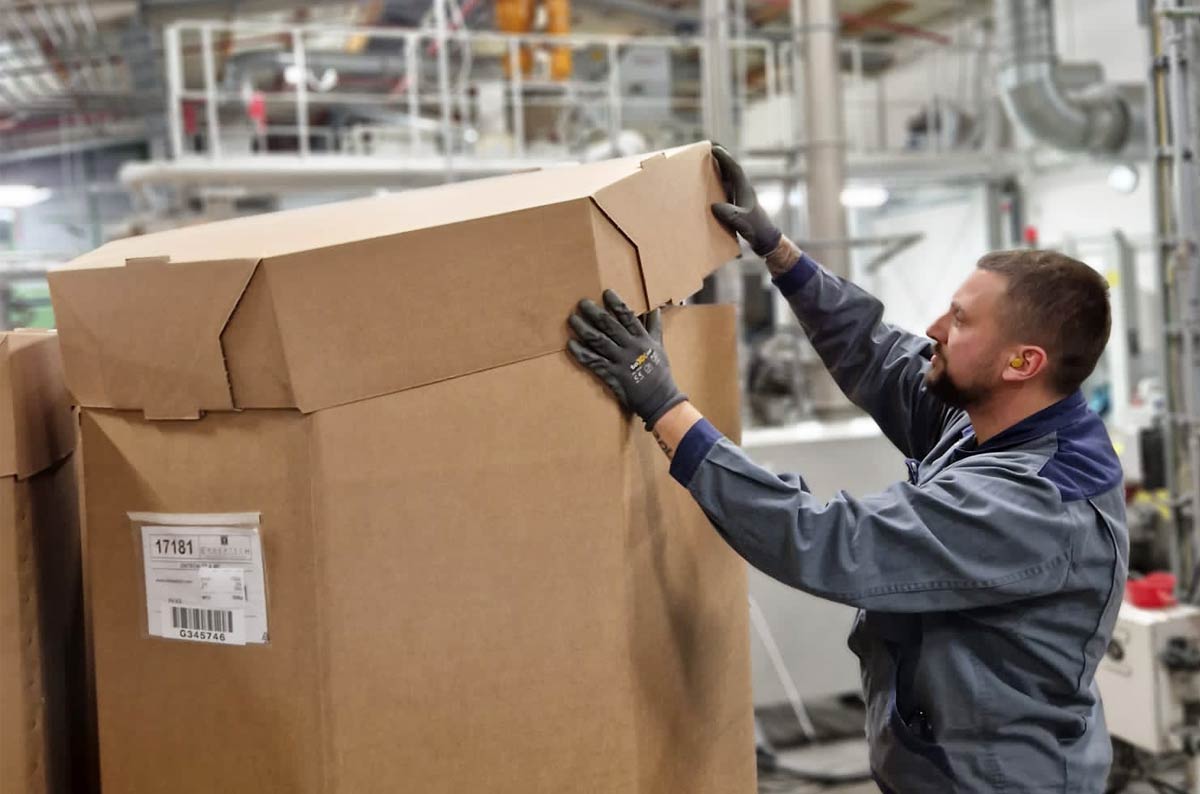Be it big bags, films, cardboard packaging, strapping, pallets, drums — most products cannot be transported from A to B without packaging material. Based on the amended EU Packaging Directive ((EU) 2018/852), which came into force in mid-2018, all EU countries have transposed the directive into individual laws — including Germany. Germany passed the Packaging Act (VerpackG) in 2019 and amended it in summer 2021. The aim: packaging should not end up in a landfill somewhere or even in the countryside, but should be recycled wherever possible. §Section 15 of the German Packaging Act (VerpackG) requires that those who place commercial and transport packaging on the market in Germany must also take it back empty.
So far, so good — but how does it actually work? Firstly, companies must register in the LUCID Packaging Register of the Central Agency Packaging Register. A take-back and recycling system then needs to be established and customers informed about it. Proof of the quantity of returned packaging and its recycling is also part of the Packaging Act.
ENNEATECH has decided to place the take-back and recycling of packaging placed on the German market in the expert hands of the “Gesellschaft zur Rückführung industrieller und gewerblicher Kunststoffverpackungen mbH”, or RIGK for short. Since then, all of Großefehn’s packaging has borne the RIGK logo; labels on invoices and delivery notes also provide information about RIGK membership. For ENNEATECH customers, this is a clear sign that they can return the emptied packaging materials to one of the nationwide RIGK collection points free of charge and without any complications. RIGK employees can find out where these are located by calling the toll-free number 0800 3086003 or visiting dispo@rigk.de..
ENNEATECH pays a licence fee for the RIGK system depending on the scope and type of packaging. This covers the costs of taking back, recycling and documenting the packaging. However, this is exclusively packaging for non-hazardous filling goods — exactly what ENNEATECH products need. At the end of the year, the polyamide experts report the packaging they have placed on the market to RIGK and an independent body — an auditor, for example — certifies the quantities for reporting to the legislator.
RIGK works with a number of recycling companies to recycle the packaging waste. Based on the packaging quantities and types reported to RIGK by ENNEATECH, RIGK calculates the CO2 savings achieved by recycling the packaging. ENNEATECH receives a climate certificate for these savings. In order to determine the CO2 savings, RIGK, together with the Fraunhofer Institute for Environmental, Safety and Energy Technology (UMSICHT), has drawn up a CO2 balance sheet for its take-back systems based on ISO standards 14040 and 14044.
By taking back and recycling its packaging through the RIGK system in accordance with the law, ENNEATECH ensures that the packaging materials for its products do not end up anywhere in the environment within Germany, but are returned to the recycling cycle.
